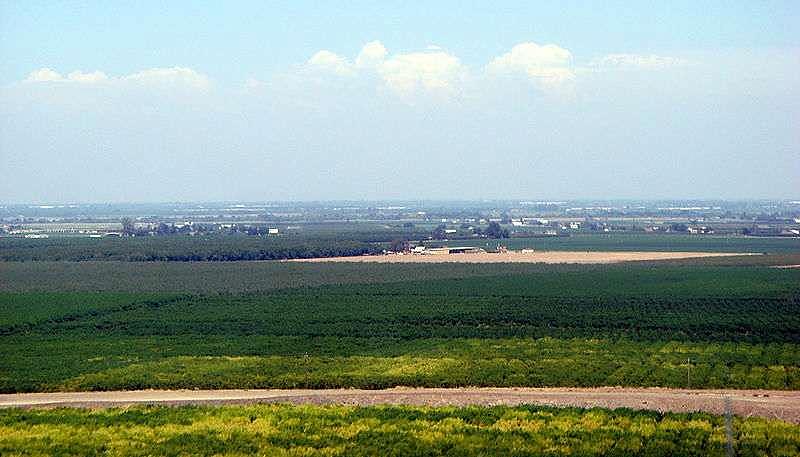Place Matters: Zoning in on Health Disparities

California's San Joaquin Valley
When it comes to health, ZIP code matters. Where you live—and who you are—plays a big part in how long you’ll live. A 2012 report from the Joint Center for Political and Economic Studies found that if you live in poverty in California’s San Joaquin Valley, you’re twice as likely to die prematurely as someone who lives in an upper-class community. In the valley, the poorest areas tend to have more Hispanic residents. If you’re poor and Latino, you could die 20 years earlier than if you were white and living in an affluent neighborhood.
Growing evidence suggests that poverty itself affects health in complex ways that scientists are just beginning to understand. And though researchers can’t say for certain that farmworkers’ neighborhood conditions directly cause documented health disparities, no one disputes that farmworkers endure more environmental risks than other communities. Farmworkers living in small, mostly unincorporated towns with little infrastructure pay for tap water contaminated with nitrates, arsenic and potentially carcinogenic compounds. They breathe air thick with soot, particulates and pesticides.
For the past eight years, counties in the San Joaquin Valley have ranked among the top 25 most polluted places in the United States. Work by environmental health researcher Carolina Balazs at UC Berkeley showed that poor Latinos in the valley had among the highest levels of nitrates in their drinking water. She later discovered, as research scientist for the nonprofit Community Water Center, that poor communities faced the greatest risk from unsafe levels of arsenic-tainted tap water.
In a story for Environmental Health News last year, I reported that California officials knew for decades that nitrate contamination was a cost of the state’s $37.5 billion farming industry and could no longer deny who was shouldering that cost. Living amid these agricultural riches in the wealthiest country in the world, the poor Latino farmworkers who help feed the nation must contend with Third World problems. An activist working to ensure safe drinking water for these communities told me that local residents think it’s normal not to drink water from the tap. They think it’s normal to have to buy bottled water even while paying for tap water that’s not fit to drink.
As a 2013 Dennis Hunt Grantee, I’ll investigate the health impacts of these cumulative exposures on farmworkers living in tiny towns scattered throughout California’s prosperous orchards and farmlands. I’ll use computer-assisted reporting to help identify the environmental risks facing these communities, tell the stories of the people who live there and talk with experts working to clarify the muddy connections between environmental exposures and health.
We depend on farmworkers to pick the fruits and vegetables we need to keep our families healthy. Yet the clustering of social, economic and environmental risks in their communities places a disproportionate burden on their own health. My investigation will document the extent of this disparity—a widening gap that policymakers have ignored for far too long.

